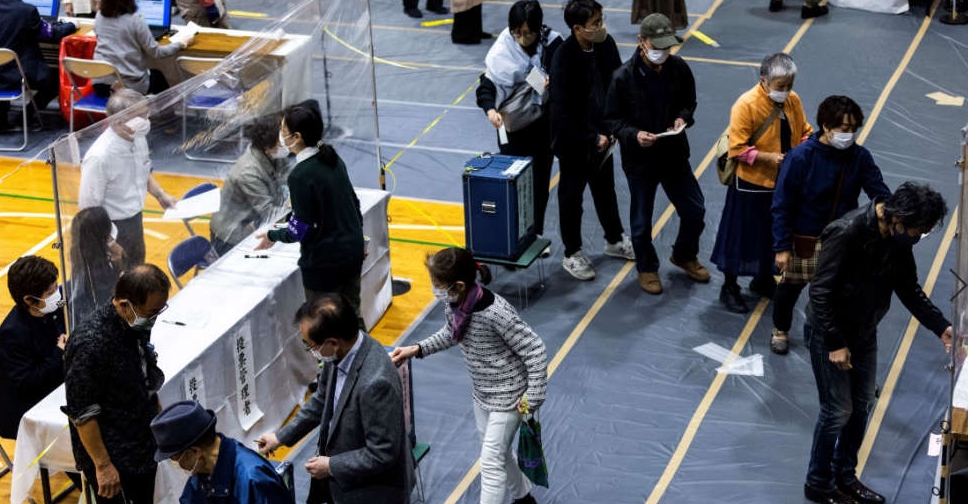
Japanese voters decide on Sunday whether to endorse the conservative government or to weaken Prime Minister Fumio Kishida and possibly return the world's third-largest economy to a period of political uncertainty.
The vote is a test for Kishida, who called the election soon after taking the top post this month, and for his Liberal Democratic Party (LDP), which has been battered by its perceived mishandling of the coronavirus pandemic.
Already, the new premier has struggled to advance policies to help poorer people, while securing a big boost in military spending and taking a harder line on China.
The LDP is on the brink of losing its sole majority in the lower house of parliament for the first time since 2009, opinion polls show, although its coalition with junior partner Komeito is forecast to remain in control.
"Revolving-door prime ministers is a weakness that many outside of Japan fear," Sheila A. Smith, a senior fellow at the Council on Foreign Relations, wrote in a blog post. "Prime Minister Kishida will need a unified party and a strong electoral showing on October 31 if he is to successfully tackle Japan’s difficult national agenda."
The biggest opposition group, the Constitutional Democratic Party of Japan, is expected to gain seats but not come near toppling Kishida's coalition.
Still, a big loss of LDP seats could lead to party infighting, returning Japan to an era of short-lived administrations that diminished its global stature, until Shinzo Abe helmed the country for a record eight years to September 2020.
Uncertainty is high, with the Nikkei newspaper estimating 40 per cent of single-seat districts have close races and recent polls showing some 40 per cent of voters undecided.
Voting ends at 8:00 pm (1100 GMT), with projected results likely to come soon afterward from media exit polls.
Kishida's publicly stated goal is for his coalition to keep a majority, at least 233 seats, of the 465 in the lower house. Before the election, the coalition had a commanding two-thirds majority of 305, with the LDP holding 276.
Investors and political watchers are focussed on whether the LDP - in power for all but brief spells since it was formed in 1955 - can keep its majority as a single party. Losing that would erode Kishida's power base in the factional LDP and the party's standing against the dovish Komeito.
The usually splintered opposition is united, arranging for only one party - including the widely shunned Communist - to face off against the coalition in most districts.
But the opposition has failed to capture the hearts of voters, with only 8 per cent supporting the Constitutional Democrats while 39 per cent back the LDP, according to a poll last week by public broadcaster NHK.



 Israeli attacks on Gaza killed 60 people in 24 hours
Israeli attacks on Gaza killed 60 people in 24 hours
 Trump fires National Security Agency director
Trump fires National Security Agency director
 Israel steps up Syria strikes, says Turkey aims for 'protectorate'
Israel steps up Syria strikes, says Turkey aims for 'protectorate'
 US sending Israel 20,000 assault rifles that Biden delayed
US sending Israel 20,000 assault rifles that Biden delayed



